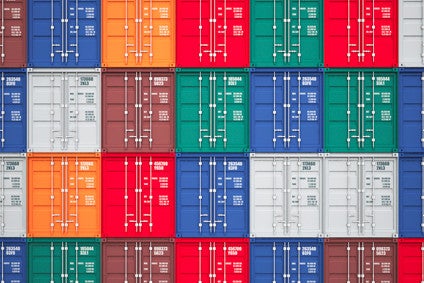
One year into the EU-Canada trade agreement and the results are apparent, with EU clothing exports up by 11% new figures show.
Friday 21 September marked the first anniversary of the provisional entry into force of the Comprehensive Economic and Trade Agreement (CETA) between the EU and Canada. It is expected to save EU businesses EUR590m (US$685.4m) a year in tariffs on goods exported to Canada, and for the European textile sector it has ended duties of up to 18% that were previously imposed by Canada.

Discover B2B Marketing That Performs
Combine business intelligence and editorial excellence to reach engaged professionals across 36 leading media platforms.
In addition to removing virtually all customs duties, CETA has given a boost to the business climate between the EU and Canada, the European Commission says, offering legal certainty for EU companies looking to export.
CETA will only enter into force fully and definitively, however, when all EU member states have ratified the Agreement – a process that could take many years.
While it is too early to draw any firm conclusions, initial trade results from the Commission are pointing in the right direction. Across the EU, the latest statistics available, covering the October 2017 to June 2018 period, suggest exports are up by over 7% year-on-year.
Of these, certain sectors are doing especially well. Particularly, footwear and clothing, which have seen an increase in exports of 8% and 11%, respectively.

US Tariffs are shifting - will you react or anticipate?
Don’t let policy changes catch you off guard. Stay proactive with real-time data and expert analysis.
By GlobalDataSwedish online menswear brand Asket is one company preparing to reap the benefits from the reduction in tariffs.
“As we grow as a company, we are increasingly looking outside of the European market. However, tariffs on clothes make this more difficult and expensive for our customers,” says co-founder August Bard Bringéus. “By opening up foreign markets like Canada, South Korea and Japan, trade agreements make our products more competitive there. We’ve just registered with the Swedish customs authorities and are looking forward to sending our first order to Canada tariff-free.”
Meanwhile, Italian tie maker Graffeo Cravatte began to trade with Canada four years ago and now operates with three local distributors in the country. The company’s exports to Canada now make up 7% of total turnover.
The Commission says the agreement offers better conditions for services’ suppliers, greater mobility for company employees, and a framework to enable the mutual recognition of professional qualifications, from architects to crane operators.
“The EU-Canada trade agreement has now been in action for a year and I’m pleased with the progress made so far,” says commissioner for trade Cecilia Malmström. “The preliminary data shows there is plenty to celebrate, even at this stage. Exports are up overall and many sectors have seen impressive increases. This is great news for European businesses, big and small.
“As ever with these agreements, there are certain areas where we have to make sure that we thoroughly implement what has been agreed, making sure that citizens and companies can fully benefit from the new opportunities. I’m happy to say that our partnership with Canada is stronger than ever – strategically as well as economically. Together, we are standing up for an open and rules-based international trading order. CETA is a clear demonstration of that.”





